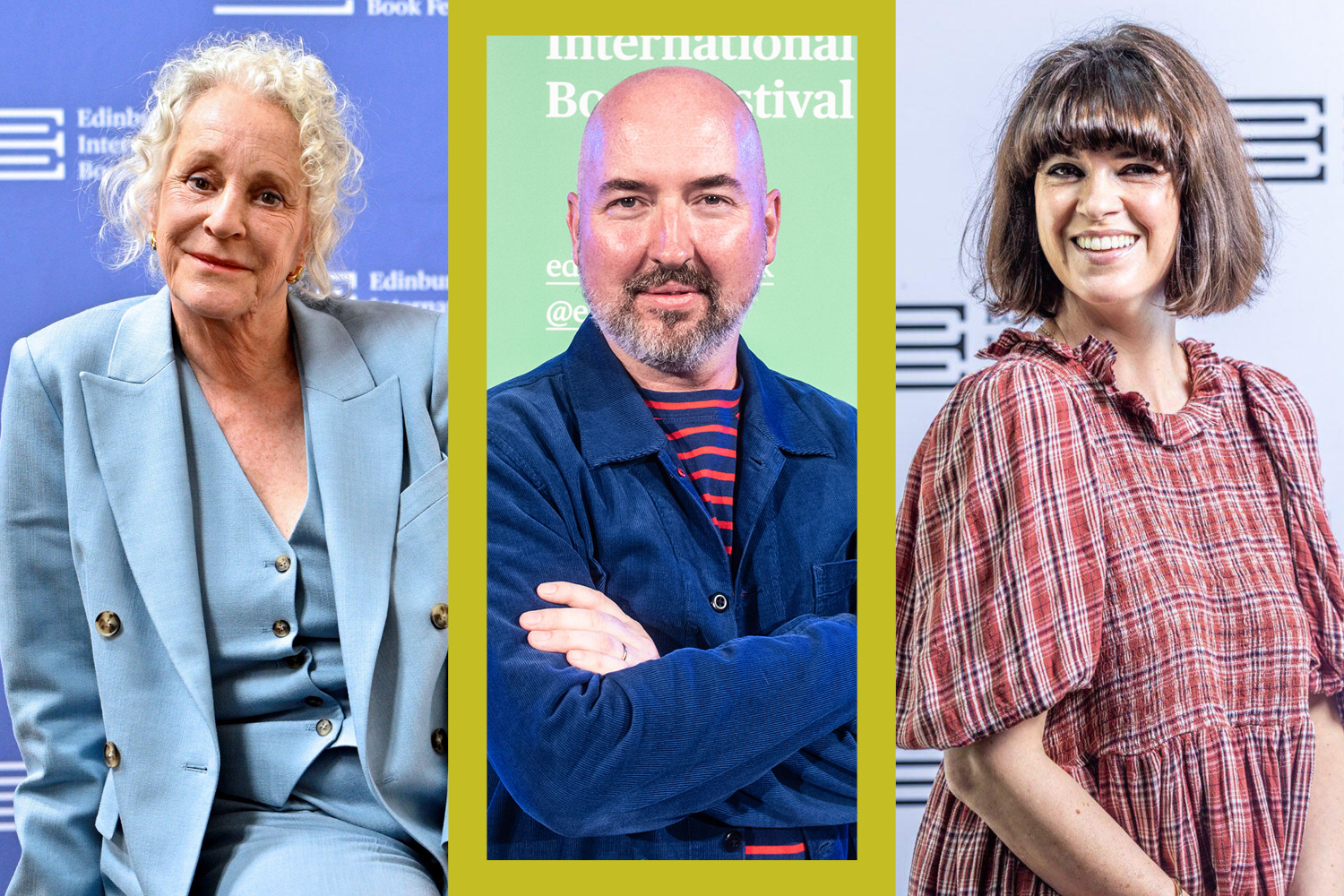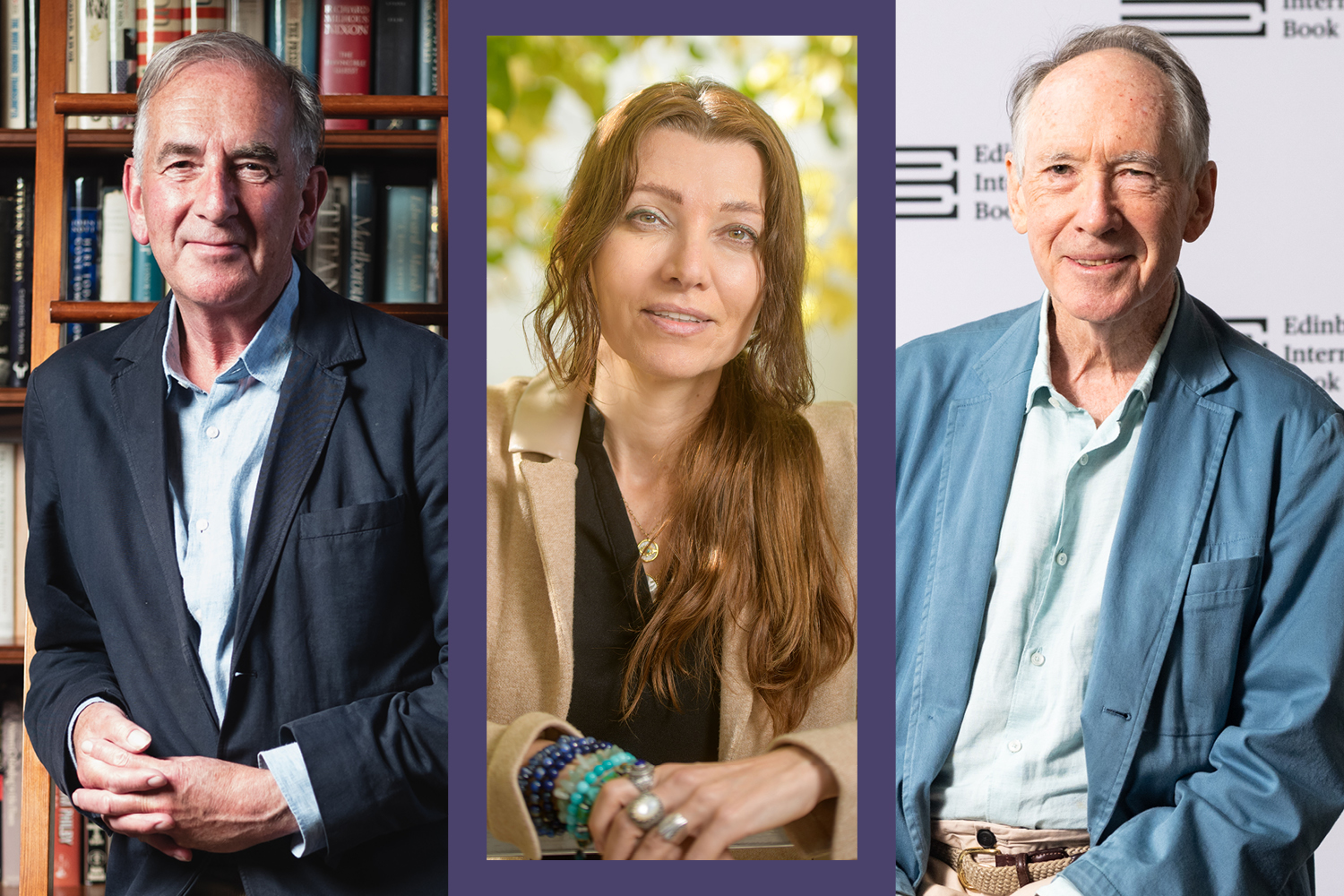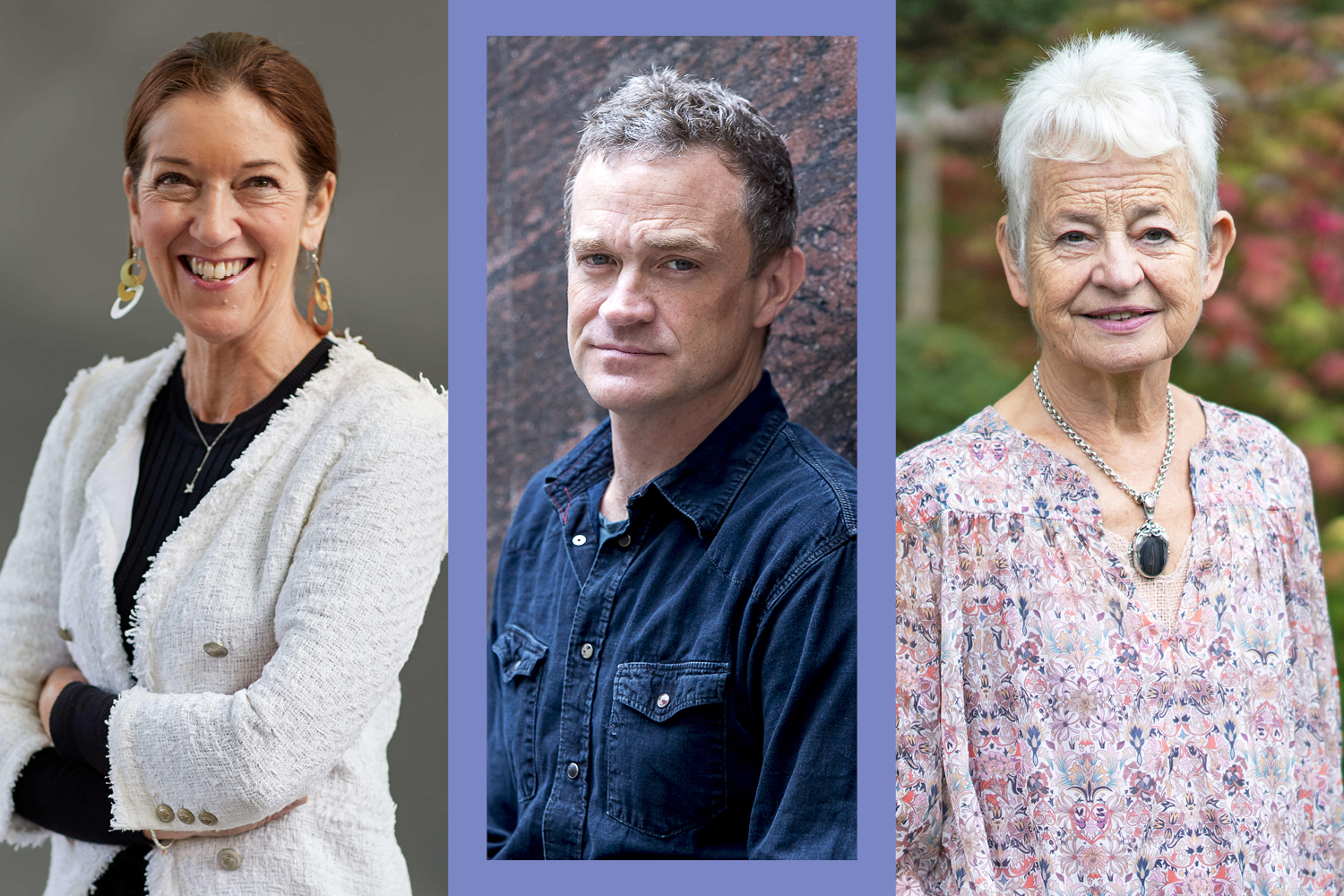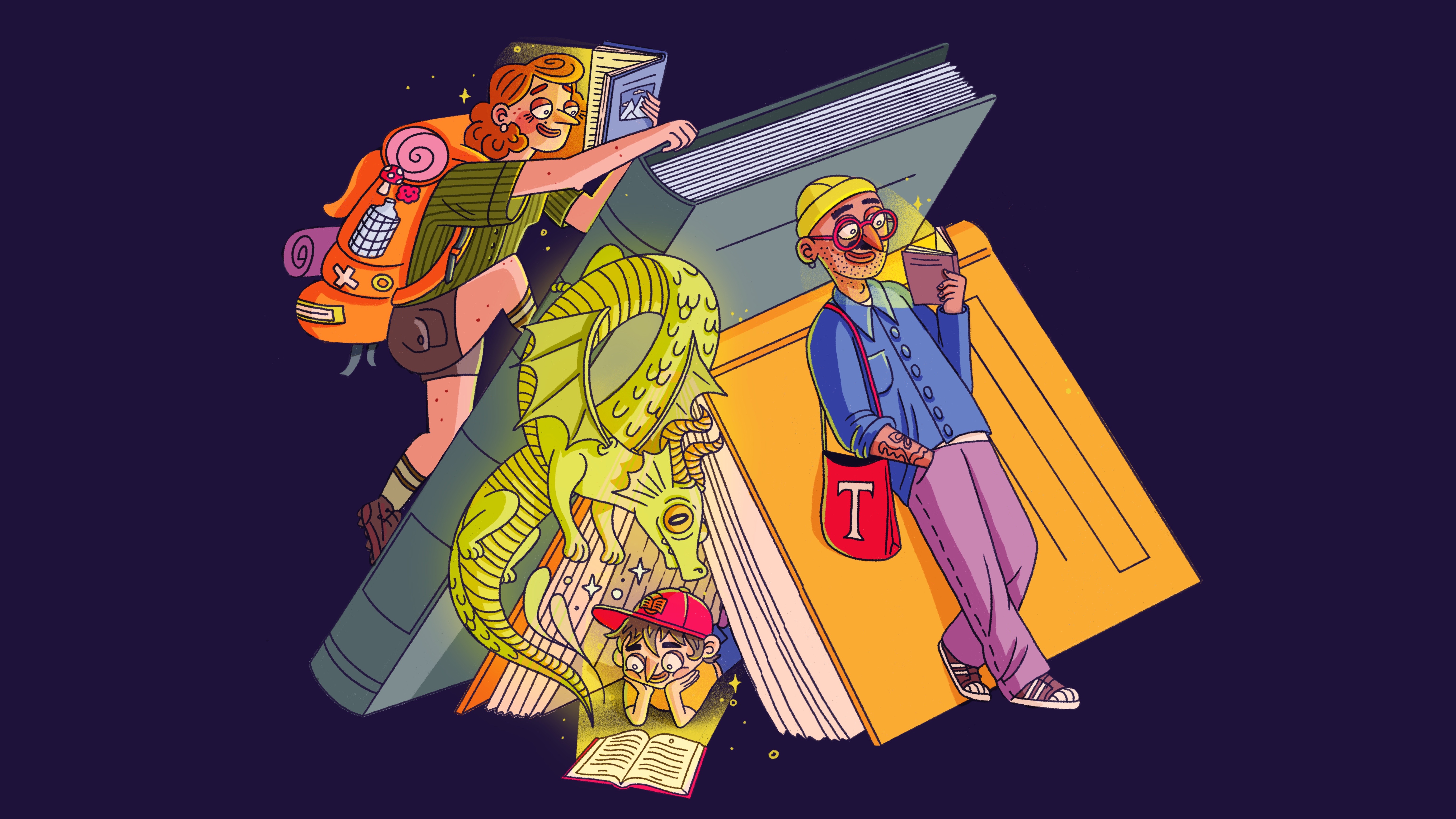The Sunday Times has today launched a campaign to Get Britain Reading as new data shows that people of all ages now read social media posts more often than books.
Among younger British adults, printed books have dropped out of the top three most popular reading formats, falling below subtitles and digital articles.
Decades of research shows that reading for fun can transform lives. It boosts children’s and adults’ mental health and has been found to be more important for a child’s cognitive development between the ages of 10 and 16 than their parents’ level of education.
Yet the proportion of children who never read for enjoyment is rising across every age bracket, according to the National Literacy Trust. One in five children aged 11 to 13 now never pick up a book voluntarily, and parents are reading less frequently to their children.
One in ten children (9.8 per cent) aged five to 18 surveyed by the National Literacy Trust do not have a book of their own. Secondary school heads say many 11-year-olds arrive in Year 7 still in the early stages of learning to read. The problem affects up to 150,000 children a year in England. The crisis is also hitting our universities. This month it emerged that experts were teaching English literature undergraduates how to concentrate long enough to read long novels. Academics said the students had grown up with phones and often felt intimidated.
With our Get Britain Reading campaign you can:
• Donate to Bookbanks to put books in the hands of those most in need
• Volunteer to read in schools with Coram Beanstalk
• Above all, take our pledge to read for pleasure for at least ten minutes a day for the next six weeks
The leading figures supporting our campaign include Chimamanda Ngozi Adichie, Salman Rushdie, Jamie Oliver, Michael Morpurgo, JK Rowling, Nick Cave, David Nicholls, Jacqueline Wilson, Katherine Rundell, Philip Pullman, Simon Armitage, Robert Harris, Ian McEwan, Anne Fine, Marian Keyes, Quentin Blake and Dolly Alderton.

Philippa Gregory, Douglas Stewart and Dawn O’Porter
The scale of the challenge has prompted the government to declare 2026 the National Year of Reading.
Backing The Sunday Times reading campaign, Bridget Phillipson, the education secretary, said: “It’s incredibly important that children have the chance to read for pleasure, develop a love of reading, because those habits that you build up as a child stay with you for the rest of your life.”
British adults across all age categories are now more likely to read social media posts than any other reading format, according to a new report funded by Arts Council England.
The survey of 4,000 UK adults by The Reading Agency, a charity, found that subtitles were the second most commonly read format for under-35s. Print books featured in the top three for those aged 35 and over, as well as either digital articles or print media.

Robert Harris, Elif Shafak and Ian McEwan
Adults spend eight full days and nights a year reading social media posts, compared with six days reading a book. However, they were far more likely to “very much enjoy” reading print books than social media (45 per cent versus 23 per cent).
The benefits of taking time out to read in any format are stark. The report found that, compared with non-readers, those who read regularly are 45 per cent more likely to report sleeping well, 58 per cent more likely to report feeling generally happy, 35 per cent more likely to say they do not feel lonely and 32 per cent more likely to say they do not feel anxious or depressed.
According to the Organisation for Economic Co-operation and Development, reading for pleasure has a greater impact on a child’s academic success than their socioeconomic background.
However, book ownership is not a given. As part of our campaign, we are asking for donations from readers to Bookbanks, a charity which gives away books inside food banks. Its 50 trained volunteers — including authors, librarians, booksellers and teachers — work at six food banks across the country, but the charity hopes to expand with more funding.
Emily Rhodes, founder of Bookbanks, said: “We see a real hunger for books. Books can take readers on many extraordinary journeys — one of these could well be a journey out of poverty. We are so grateful to The Sunday Times and its readers for helping us raise the funds to reach more of the 2.4 million people accessing food banks throughout the UK.”
Dame Rachel de Souza, England’s children’s commissioner, said children’s innate appetite for reading was still there despite competition from social media and gaming. She said: “Reading changes lives. Stories shape lives. Across the country children tell me they want more places where they can read and be free.
“As children’s commissioner, I’ve heard from a million children, and it’s clear that this generation of children who are inundated with screens want libraries and books more than ever.”
The demise of regular reading among adults is profoundly affecting how much parents read to their children as well. A report by HarperCollins found that less than half (41 per cent) of under fives are read to frequently, a steep decline from 64 per cent in 2012.
Parents also read less to their sons than their daughters. Only 29 per cent of boys under three are read to every day or nearly every day, compared with 44 per cent of girls.
Less than half of parents of children 13 and under said reading aloud to children is “fun for me”. This is why Coram Beanstalk needs readers’ help to pass on their love of reading to children by volunteering across Britain’s schools.
Amy Lewis, head of Coram Beanstalk, said that all children deserved someone to help them build on the skills they learn in school so they can discover the “immersive” enjoyment of books. She said: “Sadly, for a variety of reasons, not all children have that person in their lives, and that’s what we want to change. Every child deserves someone to show them that reading is great.”
The crisis is not being felt equally. For example, 24 per cent of children aged 8 to 18 in London read daily in their free time, compared with 16 per cent in Yorkshire and the Humber.
These differences across the country are also reflected in the proportion of children falling below their expected reading level.
One in ten children eligible for free school meals have no books of their own at home, compared with one in 13 children who are not financially disadvantaged. Book ownership over the past decade was most common in the east of England, London, the southeast and the southwest, and least common in the northeast, the northwest and Yorkshire and the Humber.
Jamie Oliver, the chef, said that we must embrace books in all their forms including audiobooks, particularly for those like himself who have dyslexia: “As a parent, I believe the two most important gifts you can give your children are a love of good food and a love of reading — and that has to include children who struggle with books. For those with dyslexia who find black-and-white pages a challenge, there are other ways to capture their attention and fire up their imagination.”
Above all, we are asking people to pledge to read for pleasure for ten minutes a day — both for themselves and to inspire those around them.

Victoria Hislop, Patrick Radden Keefe and Jacqueline Wilson
Jason Vit, assistant director of the National Literacy Trust, said: “If readers take up the challenge and read for ten minutes a day, then, if possible, try to be seen doing it by friends and family. If you are reading on a device then make it clear to children, to grandchildren, you are taking the time to read, you are enjoying it. The more that everybody sees other people reading, the more permission people have to do it themselves.
“Reading for enjoyment is absolutely fundamental. For a child, it is the most important predictor of future academic outcomes and life success. For both children and adults it is also a time to reset, to reconnect, to learn, to build empathy. It helps our sense of wellbeing and our happiness, our understanding of the world.”
Laura Trott, shadow education secretary, said: “On my way to work every morning, it’s hard not to notice adults and children sitting side by side, not talking, not reading, just heads down, faces lit by phone screens. Reading is tragically in decline, and with it we’re losing the ability to concentrate, to think deeply, and the joy of getting lost in another world … That’s why The Sunday Times’ Get Britain Reading campaign is so important.”
Why we’re launching the Get Britain Reading campaign, by the editorDo you miss the thrill of getting stuck into a wonderful book? I know I do, and in a world of scrolling through your phone, streamer hopping and podcast promiscuity, the very physical act of picking up a novel and turning the page can seem almost daunting, rebellious even.
Reading for pleasure is more than just a life skill, it is the essence of life: the simple yet glorious transmission of words, emotions and ideas via the intimacy of the printed page.
The word “crisis” is overused by journalists. There is a reading crisis, however, and it is applicable to every generation. That is why The Sunday Times today launches our campaign to Get Britain Reading again.
Donate to Bookbanks to put books in the hands of those most in need.Volunteer to read in schools with Coram Beanstalk.Above all, pledge to read for pleasure for at least ten minutes a day for six weeks.
Ben Taylor, editor of The Sunday Times
About our charities
Bookbanks sets up weekly pop-up stalls of free books inside food banks. Trained volunteers with a passion for books help people find titles that suit their interests and use the books to spark conversation. Bookbanks also hosts literary events at food banks including author readings, children’s activities, writing workshops and librarian visits. Since launching in June 2024, the charity has grown to partner with six food banks in London, Manchester and Norfolk, and give out, on average, 1,000 books every month, half of which are children’s books.
Coram Beanstalk is a national children’s reading charity with more than 50 years’ experience in creating readers through one-to-one, in-person reading support. Evidence shows that when children not only can read but choose to read, it has a more profound impact on a child’s academic success than their socioeconomic background. In addition, readers also benefit from improved wellbeing and better life chances. Coram Beanstalk has the knowledge and experience to mobilise and equip communities to deliver help to children in schools who need extra support to become readers.

ILLUSTRATION BY NINA KRAUSE
More than 70 leading names back our campaign
Thank you to Chimamanda Ngozi Adichie, Cecelia Ahern, Dolly Alderton, Jeffrey Archer, Madeline Argy, Simon Armitage, Lucy Atkins, Clare Balding, Pat Barker, Quentin Blake, Fern Britton, Nick Cave, Natalie Cassidy, Tracey Chevalier, Lauren Child, Joseph Coelho, Frank Cottrell-Boyce, Cressida Cowell, Elizabeth Day, Dame Rachel de Souza, Jack Edwards, Anne Enright, Bernardine Evaristo, Anne Fine, Ruby Granger, Philippa Gregory, Tessa Hadley, Sophie Hannah, Robert Harris, Mick Herron, Victoria Hislop, Sir Alan Hollinghurst, Oliver Jeffers, Rosie Jones, Marian Keyes, Ben Miller, Patrice Lawrence, Donna Leon, Ian McEwan, Sir Michael Morpurgo, Kate Mosse, David Nicholls, Freya North, Graham Norton, Andrew O’Hagan, Jamie Oliver, Dawn O’Porter, Bridget Phillipson, Richard Ovenden, Sir Michael Palin, Adele Parks, Maisie Peters, Liz Pichon, Philip Pullman, Patrick Radden Keefe, Michael Rosen, JK Rowling, Katherine Rundell, Salman Rushdie, Anne Sebba, Lemn Sissay, Elif Shafak, Karin Slaughter, Jamie Smart, AF Steadman, Rory Stewart, Douglas Stewart, Laura Trott, Jeremy Vine, Kit de Waal and Jacqueline Wilson.
